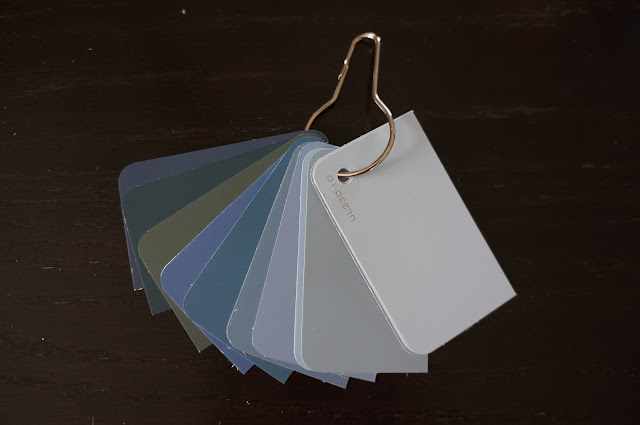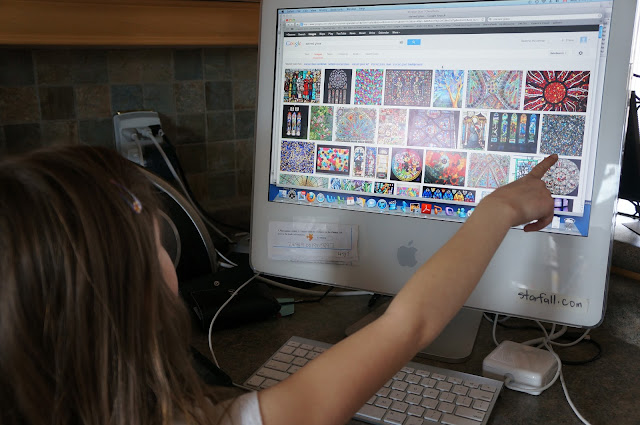Our nine month old baby noticed a bit of food drop on his tray when I was feeding him the other day. Instinctively he reached out to grab at it and was amazed when he wasn't able to hold the mush but instead succeeded in smearing the food on his tray. This important discovery was the first in his lifetime of writing - the observation that his actions could leave a mark on something. He was eager to continue dabbing at the food.
I was also eager to encourage him in this inquiry - what would happen when he was provided a large drop of smashed carrots? After I spooned them onto the tray he looked at me with surprise and tentatively reached out to touch them.
It didn't take long for the grabs to become swipes as both of his hands explored.
Much to his delight I added another scoop of food - peas - and he was able to explore two different colours of edible 'finger paint'.
His first instinct is to put anything in his mouth, but I noticed with this experience that he was more interested in exploring the food on his tray. He ran his fingers and hands over and over through the food and was very interested in watching what happened. I modelled some swirls for him using my fingers to draw in the food first and then swirling together with him hand-over-hand.
His first writing experience was a success and I know how meaningful providing early literacy experiences like this are for babies. I'm hoping to do this again soon!
Often people are uneasy with a little mess in their lives. As a kindergarten teacher I have heard time and time again a fear expressed by adults over kids becoming too messy if they play with paint, clay, and mud. However embedded deep within these messy experiences (other than the pure joy of being messy) is an understanding of how the world around us works and a desire to continue to master these experiences in a quest for knowledge.
If you don't believe me, just ask Quinn!

















































